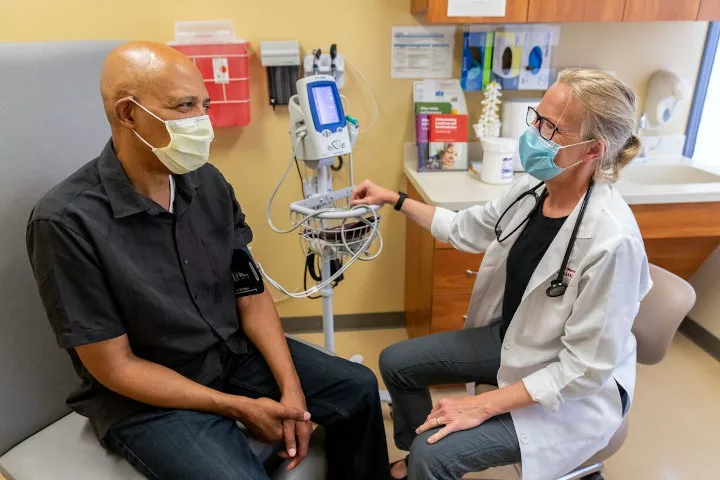UW study focuses on Alzheimer’s disease treatment and prevention in Black adults
As the first of a new generation of Alzheimer’s disease drugs hit the market, some researchers are troubled by the lack of clinical data available on the effectiveness of these drugs in Black people.
Even though Black adults are nearly twice as likely to develop Alzheimer’s as white adults, they are much less likely to be included in research, according to Carey Gleason, an associate professor of medicine and geriatrics researcher at the University of Wisconsin School of Medicine and Public Health. This means new Alzheimer’s drugs are based largely on clinical data from a population that is white, highly educated and at high-risk because of family history, she said.
“The new drugs aimed at Alzheimer’s like lecanemab target removing amyloid (plaques in the brain that are a marker of the disease) but most of the data we have about amyloid is based on white populations,” said Gleason, who holds a doctorate in clinical neuropsychology. “We don’t know if the amyloid association with disease symptoms will hold for the Black population.”
Gleason and her research team’s African Americans Fighting Alzheimer’s in Midlife (AA-FAiM) study is entering its second, five-year cycle and they are focused on making Alzheimer’s research more inclusive.
Researchers will do brain imaging and other tests with approximately 500 African American volunteers to document whether amyloid buildup is linked to disease symptoms and progression in this population. More than 400 African American participants have already signed on.
The study’s enrollment figures are eye-popping, according to Gleason. About 7% of Wisconsin’s population is Black, but Black volunteers account for 27% of the people enrolled in Alzheimer’s trials at the UW School of Medicine and Public Health.
There are many historical reasons Black individuals have been reluctant to participate in research, according to Gleason, including the horrendous Tuskegee experiments in which Black men suffered with untreated syphilis for 40 years so researchers at the Tuskegee Institute in Alabama could study the “natural course” of the infection.
“Black people are understandably tired of being used by science, and want to be treated respectfully,” Gleason said. “In truth, Black individuals do want to be included and to participate in medical research that could improve their lives and their children’s lives.”

The biggest credit for the enrollment numbers goes to AA-FAiM outreach workers in Madison and Milwaukee, who recruit families for the study, Gleason said.
Fabu Carter, outreach program manager for the school, who holds a doctorate in African women’s studies, prioritized learning what people would like to get out of an Alzheimer’s research program. Thanks to community input, AA-FAiM prevention programs include “Get Movin” exercise groups, a group line-dancing class, computer skills classes, a men’s support group, respectful transportation options and connections to social work resources, Carter said.
“We consider the community to be equal partners, so if the community has specific requests and needs – like a year-round exercise program – you make it happen,’’ Carter said. “You’re not just taking from the community without giving anything back.”
People also want to be informed about the results of their scans, spinal fluid tests, cognitive exams and other tests, Carter said
“It’s like a physical for the brain, and we talk to people about the results and give them options to improve their wellness,’’ she said. “People leave feeling like they’re cared for, that they’re in a relationship that doesn’t just take.”
The study also connects caregivers and people with memory loss to The Amazing Grace Chorus® and Precious Memories Choir, which provide social engagement and access to community services.
A grant from the National Institutes of Aging is funding the second five years of the AA-FAiM study. The team is also working on a similar project with Indigenous people in partnership with the Oneida Nation.
Gleason said she’s learned from the community that emotional intelligence is vital to attracting and retaining research participants.
“If we as researchers want to make a real difference and make real progress,’’ Gleason said. “It comes down to treating participants like people and partners.”